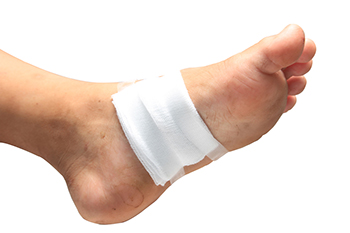
Living with diabetes brings its own set of challenges, and one significant concern is the potential for slow-healing wounds. While minor injuries are a part of life, individuals with diabetes face heightened risks. Wounds that linger, fail to heal, or become infected can lead to severe health issues, with infections spreading to nearby tissues or even becoming life or limb threatening. Monitoring these wounds is imperative as slow healing is not normal. Any signs of spreading, oozing, or extreme pain should not be ignored. Daily wound care, including cleaning and bandaging, is essential for prevention. For those with foot wounds, wearing shoes and socks may help to minimize infection risks, especially during physical activities, like walking. Seeking prompt medical attention for non healing foot wounds is paramount. Antibiotics may be necessary, and in severe cases, hospitalization may be required. This proactive approach to wound care, rooted in vigilant monitoring and early intervention, helps to guard against the potential complications of untreated wounds. If you notice lower leg and foot wounds that are slow in healing, it is suggested that you schedule an immediate appointment with a podiatrist who is trained in treating and managing foot wounds.
Wound care is an important part in dealing with diabetes. If you have diabetes and a foot wound or would like more information about wound care for diabetics, consult with one of our podiatrists from Jill Einhorn, DPM and James Einhorn, DPM. Our doctors will assess your condition and provide you with quality foot and ankle treatment.
What Is Wound Care?
Wound care is the practice of taking proper care of a wound. This can range from the smallest to the largest of wounds. While everyone can benefit from proper wound care, it is much more important for diabetics. Diabetics often suffer from poor blood circulation which causes wounds to heal much slower than they would in a non-diabetic.
What Is the Importance of Wound Care?
While it may not seem apparent with small ulcers on the foot, for diabetics, any size ulcer can become infected. Diabetics often also suffer from neuropathy, or nerve loss. This means they might not even feel when they have an ulcer on their foot. If the wound becomes severely infected, amputation may be necessary. Therefore, it is of the upmost importance to properly care for any and all foot wounds.
How to Care for Wounds
The best way to care for foot wounds is to prevent them. For diabetics, this means daily inspections of the feet for any signs of abnormalities or ulcers. It is also recommended to see a podiatrist several times a year for a foot inspection. If you do have an ulcer, run the wound under water to clear dirt from the wound; then apply antibiotic ointment to the wound and cover with a bandage. Bandages should be changed daily and keeping pressure off the wound is smart. It is advised to see a podiatrist, who can keep an eye on it.
If you have any questions, please feel free to contact our offices located in Brooklyn and Astoria, NY . We offer the newest diagnostic and treatment technologies for all your foot care needs.